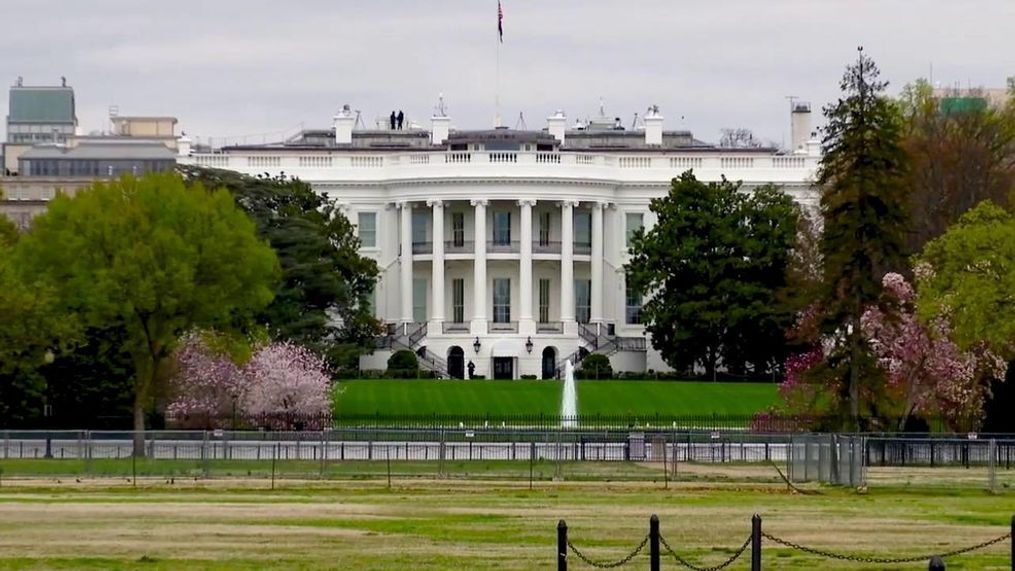Trump, in reversal, rejects federal bailout for states, cities

WASHINGTON (SBG) — In an abrupt reversal of a policy position the White House staked out last week, President Donald Trump rejected the idea of using a forthcoming federal spending package to deliver financial support to state and local governments devastated by the coronavirus.
"Why should the people and taxpayers of America be bailing out poorly run states (like Illinois, as example) and cities, in all cases Democrat run and managed, when most of the other states are not looking for bailout help? I am open to discussing anything, but just asking?" the president asked on his Twitter feed, which includes close to 80 million followers, on Monday morning.
As recently as last week, however, Mr. Trump -- using the same platform -- had promised to take up the cause of state and local governments in the next federal stimulus package, which would be the fourth enacted by the Congress and the president since early March to counter the economic damage caused by the outbreak. ""After I sign this Bill," the president tweeted on April 21, referring to the measure he signed into law on Friday, a $484 billion package aiding small businesses and health care providers, "we will begin discussions on the next Legislative Initiative with fiscal relief...to State/Local Governments for lost revenues from COVID 19."
What occurred in the interim, apparently decisive in changing the president's thinking, was the blunt declaration of opposition to any such bailout issued by Senate Majority Leader Mitch McConnell, R-Ky., the top Republican in Congress. Appearing on "The Hugh Hewitt Show" on April 22, McConnell said he would rather allow state governments to go bankrupt than participate in a bailout program that would use federal taxpayer dollars to shore up faltering state pension plans.
VIDEO: Breaking down the March unemployment figures
"I would certainly be in favor of allowing states to use the bankruptcy route. It saves some cities. And there’s no good reason for it not to be available," McConnell said. "My guess is their first choice would be for the federal government to borrow money from future generations to send it down to them now so they don’t have to do that. That’s not something I’m going to be in favor of."
Unlike the federal government, whose debt will soon exceed the size of the entire Ame\rican economy, state governments are required by their own state laws to balance their budgets, and there is no federal law that provides for states to declare bankruptcy. When Hewitt, the conservative radio host, reminded McConnell of that, the leader called for a "broad discussion" about the ways in which the federal government could -- and should not -- prop up state and local governments.
VIDEO: Who else, besides President Trump, has offered mixed messages on the coronavirus?
"We all have governors, regardless of party, who would love to have free money," McConnell said on the program. "I think this whole business of additional assistance for state and local governments need to be thoroughly evaluated....There’s not going to be any desire on the Republican side to bail out state pensions by borrowing money from future generations."
Democratic governors roundly criticized the majority leader, citing the distress caused by the coronavirus as their primary concern, rather than service of debt from state-controlled pension funds. "Forget the morality of it and the ethics of it and the absurdity of it and the meanness of it," said Gov. Andrew Cuomo, D-N.Y., on Friday. "To the Senate that proposed it, I say: Pass a law allowing states to declare bankruptcy. I dare you."
The enactment of such a law, said the Democratic governor of McConnell's home state, would prove "disastrous" for the states. "That puts you in the hands of a federal judge," Gov. Andrew Beshear, D-Ky., told CNN on Saturday, "and that judge could do anything from raise taxes on your people, which we can't handle right now, to making disastrous cuts to law enforcement and education and health care. "
Budget experts noted that pension funds account for only 4.7 percent of the expenditures made by the general funds of state and local governments, many of which employ separate funding mechanisms to satisfy current pension obligations.
"The virus has caused state revenues to collapse," said Michael Leachman, senior director of state fiscal research at the Center on Budget and Policy Priorities in Washington. "States depend, for 70 percent of their revenues, on sales and income taxes, and both of those things have just collapsed. People are not going to stores and a lot of people are laid off. So because [states'] revenues have declined so much, and because their costs have gone up -- to fight the virus and also because more people need help from public assistance, Medicaid and other programs -- that has put the squeeze on state budgets in a big way.And if the federal government doesn't act soon to help, states are gonna -- in the next few weeks -- start laying off teachers and first responders and health care workers."
Asked to comment on President Trump's apparent reversal on the benefits of federal support to the state and local governments, a White House spokesman did not respond.
